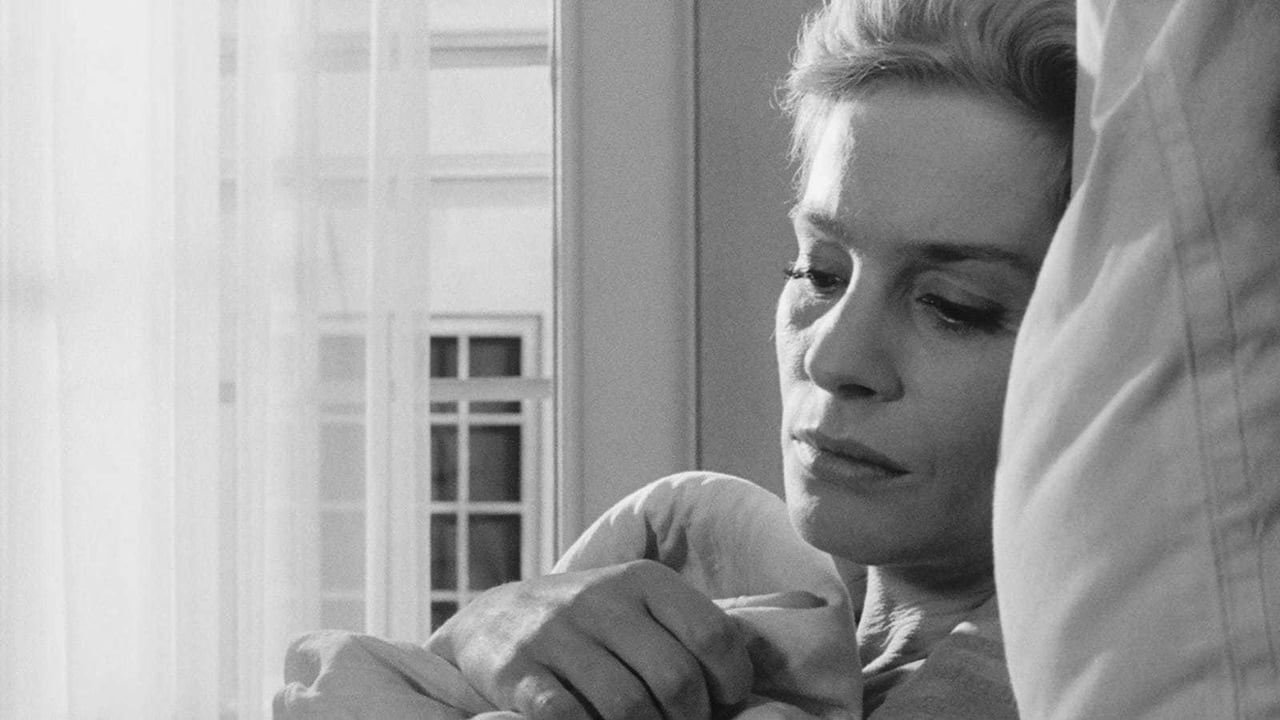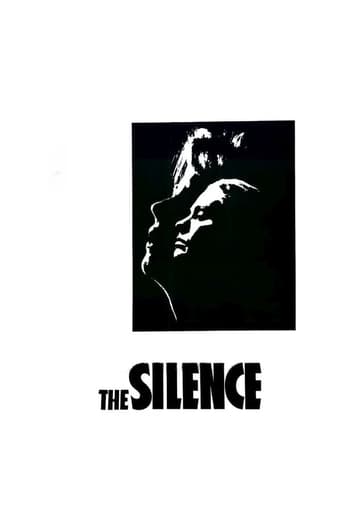



The greatest movie ever!
Lack of good storyline.
The plot isn't so bad, but the pace of storytelling is too slow which makes people bored. Certain moments are so obvious and unnecessary for the main plot. I would've fast-forwarded those moments if it was an online streaming. The ending looks like implying a sequel, not sure if this movie will get one
View MoreThis is a small, humorous movie in some ways, but it has a huge heart. What a nice experience.
View MoreBergman's response to L'Avventura, released only a couple years prior, and its aesthetic revelations. Also a mediation on the then recent Cuban Missile Crisis. This might be Bergman's most visually satisfying film, and is almost certainly that of Sven Nykvist. The opening tracking shot, a gallery of devastating close-ups in one take, is breathtaking, enough to put any director/ DP on the map. (Of course, they were both already very much on the map.) Faced with mechanized, militarized extinction, our race's impulses towards intimacy become inverted. Perhaps only translation/ transformation can redeem being- as it is, its just screwed.
View MoreA film I definitely need to see again. My first reaction was the same I've had to many of Bergman's films: deep admiration, but not personal adoration. In this case, the more extreme, self-conscious surreal style threw me off. This feels more like something by Bunuel, Fellini, Beckett or Lynch (all of whom I love). Two sisters, polar opposites – one sensual, emotional, promiscuous, self-centered, representing the body, the id. The other, intellectual, sickly, sexually isolated stands for mind or super ego. The child of one, perhaps 8 years old, is accompanying them on a train trip, heading home. We never know where they're coming from or why they went. They stop in a city clearly preparing for war, or under some sort of military occupation. They stay in a baroque but almost abandoned hotel, unable to communicate with anyone, since this unknown land has a language none of them speak. While one sister picks up lovers, and the other languishes ill in bed, the boy explores the creepy hotel (The Shining was definitely influenced by this), making friends with a circus full of dwarf performers, who, pointedly, are the most normal people in the film. All of this is done with very little dialogue (to the point where the effect felt forced and self- conscious at times). I had a hard time clicking in while watching the film, but images and moments have really stuck with me, and reading why so many intelligent critics think it's a masterpiece makes me very open to re-visiting this extremely open ended, stylized film.
View MoreWhile traveling back home by train, Anna (Gunnel Lindblom), her son Johan (Jörgen Lindström) and her sister Ester (Ingrid Thulin) that is very ill have to stop in a foreign country in Timoka City and checking- in a hotel until Ester recovers from a crisis of her illness. Ester is a translator but she does not speak the language, therefore they need to communicate by gestures with the locals. Ester is cult and controller and Anna is still attractive and very promiscuous. They are emotionally separated and without any sibling's feelings; therefore each sister just speaks to hurt the other while Johan wanders in the empty corridors of the hotel. "Tystnaden" is a film about lack of connection and communication that in certain moments seems to be a silent movie. There are very few, but sharp and ambiguous, dialogs between the two sisters and it is not clear whether they had an incestuous relationship in the past and the weird way that Anna treats her son, sleeping naked in the bed with him or asking him to soap her back (at least, for non-Swedish viewer). The performances are awesome as usual in a Bergman's film, with wonderful black-and-white cinematography, use of shadows and camera work. My vote is seven.Title (Brazil): "O Silêncio" ("The Silence")
View MoreBergman's 'Tystnaden' is not a comfortable film to watch because of its underlying dark and disturbing theme. He explores the devastating consequence of an incestuous relationship between two sisters, Ester and Anna. The destruction seems to have taken a toll on Esther's health while Anna seems to be mentally and emotionally shattered (unable to connect to others and engaging in casual sex). Amidst this is Anna's son Johan, who, like any curious child, is exploring his own world.Bergman's film starts off with the three principle characters in the train and then ends with Anna and Johan in a train as they have left Ester behind. Perhaps this last scene symbolizes Anna's escape from her traumatic experience. Bergman uses a lot of symbolism but he doesn't spoonfeed them to the viewer. It is all there in his subtle presentation. He also stresses on contrasts between different ideas such as Johan's youthful innocence (his way of seeing the world) vs the confused world interpreted by his mother and aunt. His display of the relationship between the two sisters is brilliant. A strong maternal bond is displayed in the relationship between the mother and child. It may seem as though her son is the only one with whom Anna has a stable relationship but at the same time she goes wandering off in the city leaving her child behind in the hotel. Even as a mother she is broken by the trauma. The movie has many silent moments (quite obviously given the title) but the contrast between these moments are noticeable because it is quite unsettling as the rawness of the tension is exposed. Ingrid Thulin, Gunnel Lindblom and Jörgen Lindström are stupendous in their roles as they portray the complexity of the relationships through subtlety. The cinematography is outstanding. The closeups are particularly haunting. I was surprised by the amount of nudity and sexuality (I have nothing against it) but then again, this is no conventional 60's film. It is a brave and poignant film that was ahead of its time.
View More